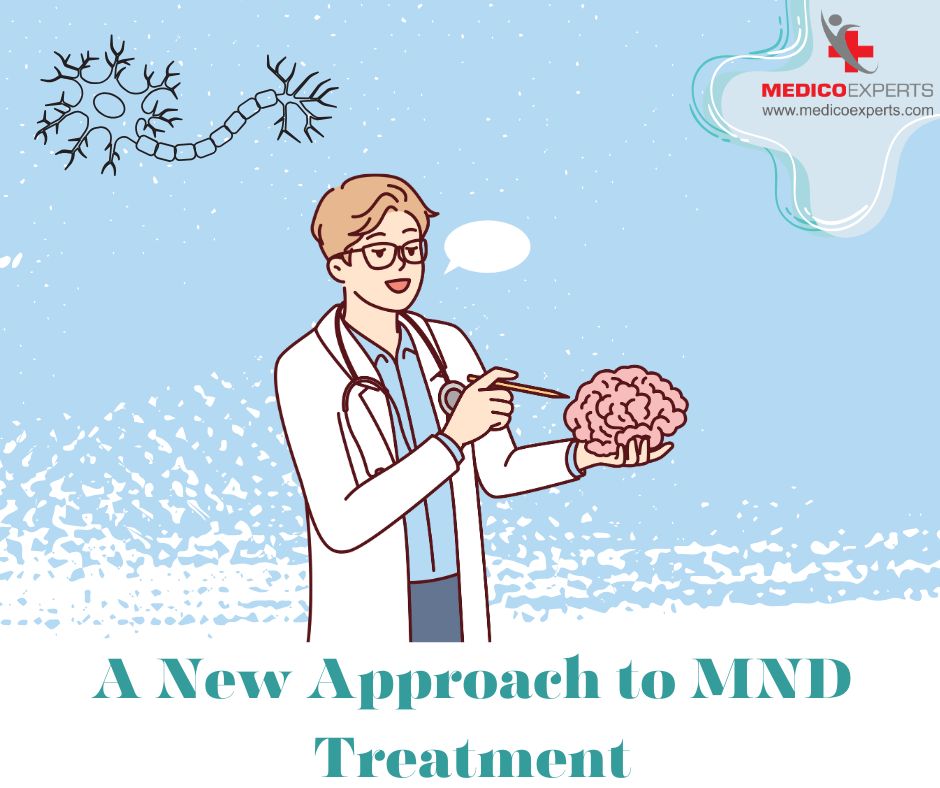Can MND be cured?
It is a question that obviously comes to your mind when you see a dear one suffering from this condition.
More so, motor neuron disease worsens over time. Early symptoms include weakness in the limbs and slurred speech but when the disease progresses it may severely affect movement, speech, and breathing.
So you may want to cure it completely so that your loved one can live an independent and healthy life.
Let’s find out whether MND is curable or not and what is the best treatment for it.
Key Takeaways
- The current outlook for patients and the possibility of a cure for MND.
- The causes and stages of MND are provided to help readers understand the disease’s progression.
- The importance of nutritional and respiratory support and the role of a multidisciplinary care team.
- Stem cell therapy, Ayurveda, homeopathy, and combination therapy are all available treatment options. These focus on managing symptoms and maintaining independence.
- How MedicoExperts offers a unique, comprehensive approach to MND treatment by connecting patients with experts from different specialities.
What is Motor Neuron Disease?
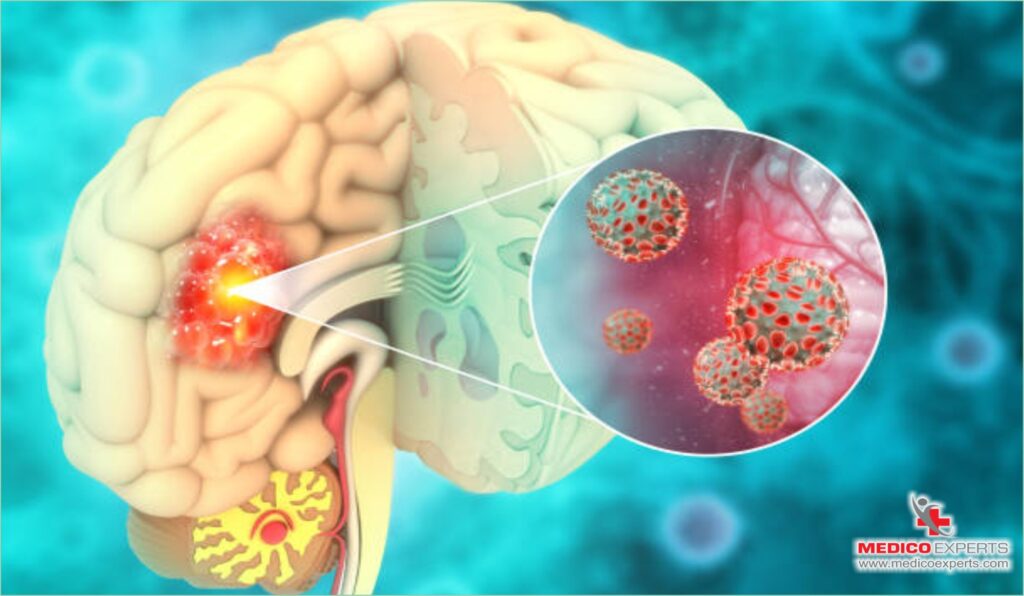
A quickly progressing condition is known as motor neuron disease. It affects the nerves controlling movement in the body. They may start from the hands, feet, or voice and vary in speed and where the initial symptoms appear.
Most patients with MND live between 1 to 5 years after diagnosis, although about 10% live for 10 or more years. With such a devastating prognosis, the afflicted individual and his family must understand whether MND is curable, if at all, and if so, the best treatment.
What are the Symptoms of MND?
Motor neuron disease (MND) is of several types and generally presents in early, middle, and advanced stages with similar symptoms. Although MND can vary from one person to another, the symptoms tend to worsen as and when one gets advanced in years, varying in degree and rate of onset.
Early Stage Signs And Symptoms
In the early stage, MND symptoms develop gradually and may be mistaken for other conditions. The specific symptoms depend on the type of MND and where it starts in the body. Initial symptoms mostly appear in the arms and legs, mouth, or respiratory system and can include:
- Weight loss due to muscle loss
- A weak grip, making it hard to pick up or hold objects
- Fatigue
- Muscle pain, cramps, and twitches
- Slurred speech
- Weakness in arms and legs
- Clumsiness and stumbling
- Difficulty swallowing
- Shortness of breath or trouble breathing
- Unusual emotional responses, like laughing or crying
Middle Stage Signs and Symptoms
As MND progresses, these early symptoms become more severe. Additional symptoms during the middle stage may include:
- Muscle shrinking
- Difficulty with movement
- Joint pain
- Drooling due to swallowing issues
- Uncontrollable yawning, which may cause jaw pain
- Changes in personality or emotional states
- Increased difficulty breathing
A 2017 study found that up to half of people with ALS (Amyotrophic Lateral Sclerosis is a progressive neurological disorder), a form of MND, may experience brain-related symptoms, such as memory and language issues, and around 12–15% develop dementia. Some people may also experience insomnia, anxiety, and depression.
Advanced Stage Signs and Symptoms
A person with MND often needs assistance with movement, eating, or breathing, sometimes requiring full support in the advanced stage. Breathing difficulties are the leading cause of life-threatening complications.
Who is Most Likely to Get Motor Neuron Disease?
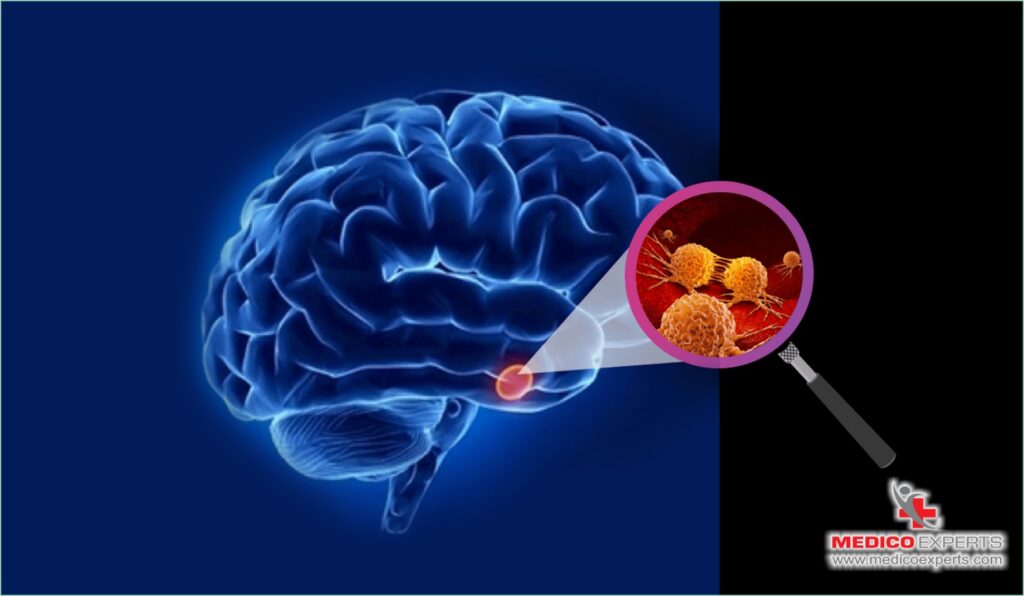
MND is a rare condition, with the highest age-specific rates occurring in individuals in their 60s and 70s. However, the disease could hit adults at any age. In this disease, the brain’s motor neurons and nerves cause muscle movement malfunction. Over time, these cells gradually stop working.
In some cases, having a close relative with MND or a related condition like frontotemporal dementia (a type of dementia that primarily affects the frontal and temporal lobes of the brain) may increase the risk.
What Causes Motor Neuron Disease?
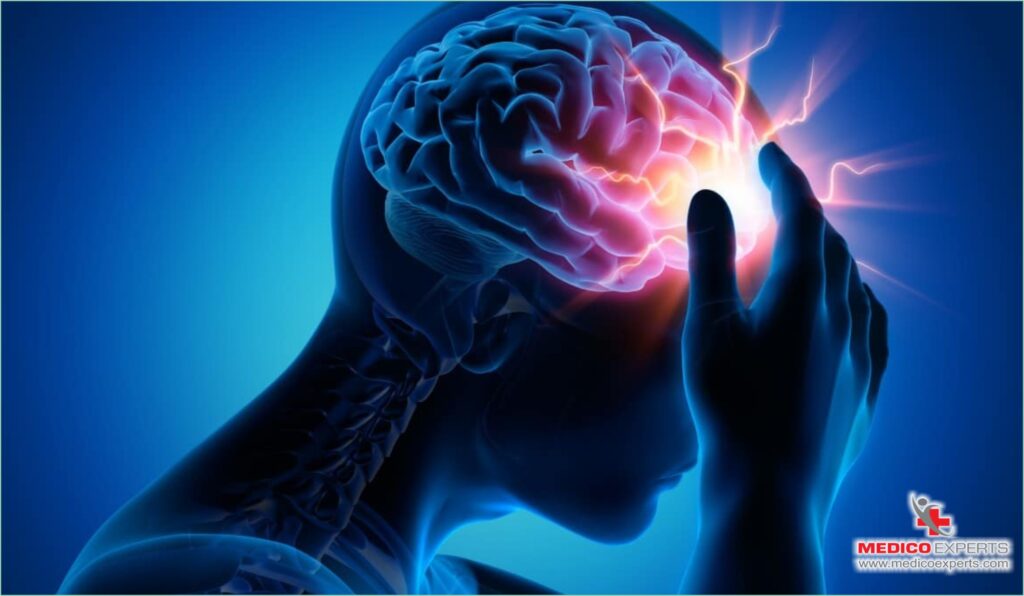
The precise cause of motor neuron disease (MND) is unknown. Most MND cases happen naturally, meaning they occur for no known reason. This kind of case is known as sporadic. However, about 10% of MND cases are passed down from parent to child. This is called familial or genetic MND.
Some theories suggest that the following factors may also contribute to MND:
- Contact with environmental toxins or chemicals
- Viral infections
- Damage linked to the immune system
- Premature degradation of motor neurons
- Genetic components
These possible causes may work together or separately to cause motor neuron disease.
How to Diagnose Motor Neuron Disease?
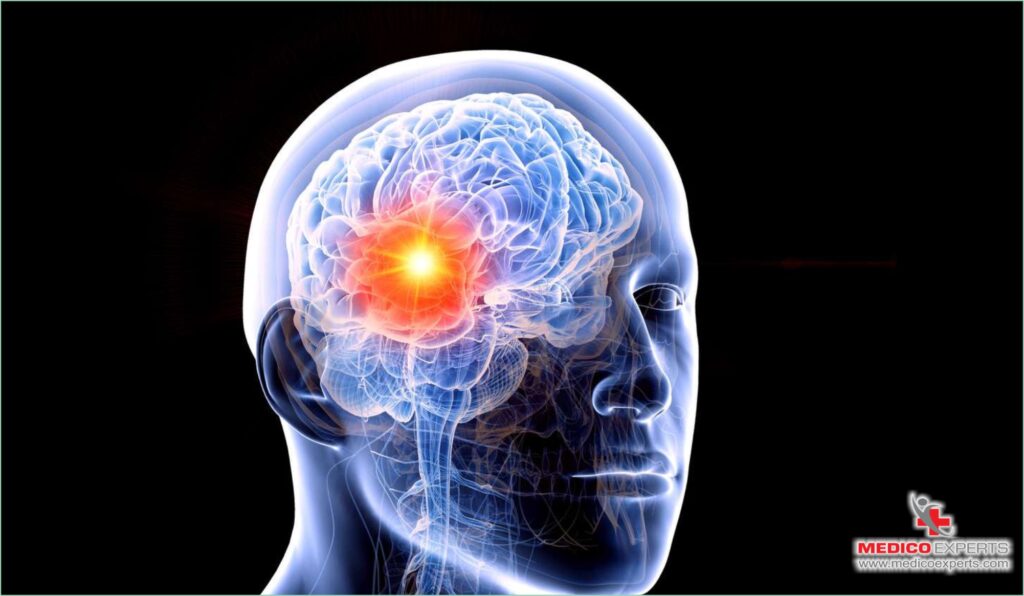
The first step in diagnosing motor neuron disease (MND) is for your doctor to examine and observe your symptoms.
Since there is no one test for MND, doctors often perform combinations of tests to diagnose MND. These tests help to confirm the diagnosis and rule out similar conditions.
- Electromyography (EMG) and nerve conduction exams assess how well your muscles and nerves function.
- MRI scans of the brain and spinal cord to detect abnormalities associated with MND or other disorders.
- Blood testing can help eliminate other potential causes of symptoms.
- A muscle biopsy is a procedure in which a tiny sample of muscle tissue is removed and examined for abnormalities.
- A lumbar puncture gathers cerebrospinal fluid from the lower spine to look for evidence of nerve and muscle problems.
Early symptoms of MND can be mild or similar to other conditions. This can make it hard to diagnose at first. If your symptoms do not improve or worsen, you must see a doctor for more testing.
Can MND Be Cured?
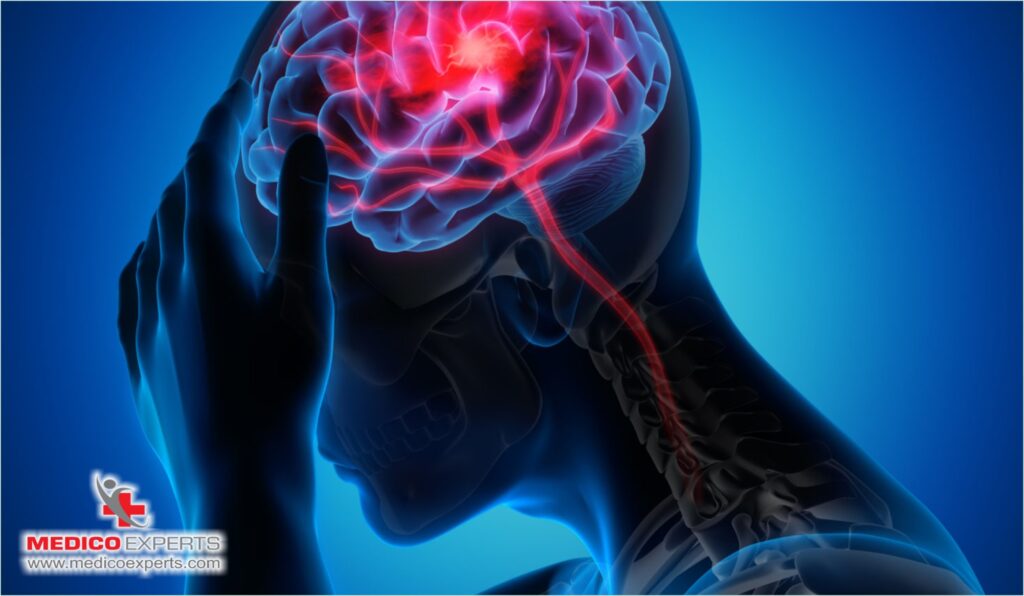
There is no cure for motor neuron disease (MND) but a range of treatments can help control and prevent its symptoms. A multidisciplinary team of healthcare professionals will work together to provide you with care.
This multidisciplinary team consists of the following:
- A neurologist and an MND expert will oversee therapy and care.
- A respiratory professional will monitor and support breathing.
- Physiotherapists will suggest mobility aids and exercises.
- Occupational therapists will analyze and recommend adjustments to your living environment.
- Speech and language therapists will aid with communication and swallowing.
- Dieticians can assist you in maintaining proper nutrition.
As MND advances, more assistance, such as palliative care, may be required to maintain comfort.
Ways to Manage Symptoms, Gain Independence And Provide Provide Relief for MND Patients
Adapting to everyday activities can help people with motor neuron disease (MND) manage symptoms and retain independence. Below are some practical adjustments for daily living:
Seating Options For MND
Here are some of the seating options that can ease an MND patient’s daily life:
- Consult an occupational therapist or physiotherapist for tailored advice.
- A stable, supportive chair can make a big difference in comfort and ease of movement.
- Add a headrest to make chairs more comfortable.
- Choose upright armchairs for added support.
- Use chair blocks to raise the height of an existing chair if needed.
- Consider manual or electric riser/recliner chairs for easier sitting and standing.
- Use pressure-relief cushions to reduce discomfort.
Bed Adjustments For MND
Bed comfort can be challenging with MND. Consider the following options:
- A mobile or overhead hoist, selected with therapist input, can assist in safe bed transfers.
- Bed blocks can raise the bed height, making it easier to get in and out.
- Use a monkey pole, backrest, or posture pillows for better positioning.
- Mattress elevators can help transition from lying down to sitting up.
- Choose specialized mattresses like airbeds or waterbeds for support.
- An adjustable bed, manual or electric, can help with repositioning.
Adjusting Working Heights
Supporting forearms at a comfortable height can make tasks like eating and writing more accessible.
- Consider forearm or mobile arm supports, especially when using a wheelchair.
- Use an adjustable cantilever table or place a box under a table for support.
- A bed tray with tiny legs can also provide a stable working height.
Using Tools And Utensils With Weakened Muscles
Weak hand muscles may make everyday tasks difficult. Try the below adaptations:
- Get additional recommendations from an occupational therapist.
- Enlarge handles on cutlery, toothbrushes, or other items with rubber tubing or epoxy resin.
- Use a strap with a pocket across the palm to hold items.
- Opt for lightweight items that are easier to handle.
Improving Lighting and Power Access
Simple electrical modifications can make it easier to control lighting and appliances.
- Using extension leads to bringing sockets to a more accessible height.
- Replace standard switches with rocker or touchpad switches.
Communication And Alarm Systems
Room-to-room communication and safety alerts can support independence:
- Alarms and computers that work by remote control are available for added ease.
- Use plug-in baby alarms or systems with radio, video, and music options.
- Some telephone systems can auto-call family or emergency services.
- Simple beepers or buzzers connected to light switches or pressure pads can signal for help.
Helpful Electrical Devices
A variety of devices can assist with opening doors, controlling lights, and operating appliances:
- Seek advice from an occupational therapist for the best devices.
- Automated door and window openers, as well as devices for controlling radios and TVs, are helpful.
- Consider plug-in timers to control heaters or lights for convenience.
Adapting Doorknobs And Locks
Extra leverage on knobs and keys can simplify access:
- Install more giant knobs on door locks, or use enlarged vital grips.
- Use multipurpose knob turners for easier grip.
Telephone Options For MND
There are many telephone adaptations to help with communication:
- The Telstra Disability Equipment Program offers specialized phones suited for various needs.
- Lightweight mobile phones or smartphones are easy to operate.
- Hands-free telephones are convenient for longer calls.
- Use speed-dial phones that store numbers for one-button calling.
Carrying Assistance For MND
Weakened muscles can make carrying items difficult, so try:
- An apron with large pockets or a cross-body bag for hands-free carrying.
- Trays with non-slip surfaces for added stability.
- Stable, purpose-built trolleys for moving items quickly around the home.
Adjusting everyday tasks and environments can help people with MND stay more comfortable and independent.
Now that we have covered and understood how to manage symptoms, let us focus on how patients get relief from MND.
Motor neuron disease (MND) causes progressive damage to the nervous system, affecting motor neurons that drive muscular movement. Over time, this causes weakening, muscular wastage, and loss of mobility. While there is no cure, various treatments can help to control symptoms and improve your health.
Below are some critical areas of support for those affected by MND:
Respiratory Care
One of the most significant advances in MND management has been using non-invasive ventilation (NIV), which aids breathing during sleep. This entails wearing a tiny, portable mask ventilator (often a bi-level positive airway pressure or BiPAP equipment) overnight.
Many people rapidly adapt to the mask and find it improves their sleep quality. In advanced stages, some patients may utilize a nasal mask with NIV during the day.
Nutrition And Food
As MND advances, swallowing issues (dysphagia) can make eating difficult. Early on, a speech therapist and dietician might offer helpful advice such as avoiding specific meals, sitting straight, and utilizing thicker beverages. As the condition progresses, eating may become more difficult owing to weakening muscles or dysphagia, perhaps leading to malnutrition.
Losing weight or body mass has been associated with shorter life. Hence, enteral feeding alternatives, such as a gastrostomy (feeding tube), are frequently indicated when weight loss is considerable.
Multidisciplinary Team
Specialized MND clinics bring together a multidisciplinary team to provide comprehensive care that has been found to increase survival rates and shorten hospital stays. The team may comprise a neurologist, physiotherapist, occupational therapist, dietician, speech therapist, and respiratory care specialist. A neurologist frequently organizes treatment, ensuring patients’ demands are fulfilled as they grow.
These life-prolonging treatments cannot cure MND, but they can give critical support for comfort, independence, and health.
Current Treatment Approaches for Motor Neuron Disease (MND)
Currently, there is no cure for motor neuron disease (MND), but numerous therapy options exist to assist in controlling symptoms, retaining independence, and enhancing health.
Here are a few of the most prevalent approaches:
Stem Cell Therapy And Regenerative Medicine For Motor Neuron Disease (MND)
Stem cell therapy, mainly using bone marrow-derived cells, has shown promise in treating MND by replenishing and preserving motor neurons.
- Neural cells are formed from bone marrow-derived cells and aid in tissue healing.
- These cells promote cell growth and provide a favourable environment for motor neurons.
- They shield motor neuron cells and secrete chemicals aiding cell repair and function.
As MND advances, motor neurons in the spinal cord and motor cortex degenerate, while sensory capabilities remain unchanged. Both glial cells and bone marrow-derived cells may help regenerate damaged motor neurons.
Cellular treatment, including hematopoietic and mesenchymal stem cells, can allow these cells to move to the damaged part of the spinal cord, giving much-needed assistance to motor neurons.
Clinical trials in India show that stem cell therapy is a safe therapeutic option, and continuing research is improving procedures such as intracerebral, intraspinal, and intrathecal cell transplants to optimize efficacy.
Ayurveda
Ayurveda offers herbal wisdom and natural therapies that highlight healing in a gentle way, steering clear of harsh treatments or unwanted side effects. It focuses on creating a balance between the mind, body, and soul.
Herbal medications and ointments are great for helping to balance the body’s three doshas: Vata, Kapha, and Pitta. The Ayurvedic treatments for motor neuron disease emphasize several essential techniques for slowing down nerve cell deterioration:
1. Purifying the Body
The initial phase focuses on removing deeply rooted impurities that can arise from environmental influences or hereditary factors. Panchakarma is frequently the preferred approach for cleansing the body. Intensive panchakarma may not be suitable for some individuals due to their advanced state of degeneration. In such a scenario, detoxification is carefully treated with targeted medications. This provides a secure and nurturing approach to MND treatment.
2. Rasayana Therapy
Rasayana therapy provides essential nourishment and support. Simple yet effective herbs such as Ashwagandha, Amla, and Mulethi can aid in strengthening the body. More detailed preparations like Brahmarasayana or Chyawanprash might be suggested according to your specific requirements. The doctor selects the appropriate blend of these treatments to deliver significant rejuvenating support.
Homeopathy
Homeopathy’s approach is distinctly tailored to each person’s specific needs.
In order to find the right remedy, the practitioner will consider your physical, emotional, and mental symptoms. Homeopathic remedies are available in multiple formats, such as liquids, granules, powders, or tablets.
Your practitioner may also recommend changes to your lifestyle or diet as part of the plan. Some people may notice a temporary increase in symptoms, known as ‘aggravation,’ which can occur before improvement begins. If you experience this, let your homeopath and doctor know, especially if it feels intense. Your homeopath might even suggest consulting another healthcare provider if necessary.
Supportive Therapy
Several types of therapists offer essential aid to MND patients:
1. Occupational Therapy
Occupational therapy, or OT, focuses on assisting MND patients to regain independence with everyday tasks. It’s all about getting your strength back, boosting your stamina and hand function, and tackling fatigue head-on.
Many MND patients notice significant improvements in their motor skills. They find they can take on more daily tasks by themselves, which means they need less help from a caregiver. At MedicoExperts, our incredible team of occupational therapists helps patients boost their functionality and regain their sense of security.
2. Physiotherapy
Physiotherapy helps MND patients, particularly with their posture and mobility. It can help with posture, keep joints from getting stiff, and slow down muscle weakness and atrophy.
Maintaining mobility is crucial even when muscle strength starts to decline. The physiotherapists at MedicoExperts have years of experience and will prepare personalized exercise plans that fit each patient’s needs, lifestyle, and goals.
3. Speech and Language Therapy
Speech and language therapy can be extremely beneficial for people with MND. MND impacts the muscles in the mouth, tongue, and throat, which can cause problems with swallowing and talking.
A speech therapist helps people keep their communication skills and swallowing abilities in check. They work with patients to manage symptoms and get back to producing speech and sounds.
Diet Plans
When it comes to diet programs, dietitians team up with MND patients to craft personalized meal plans. These plans are tailored to fit their specific nutritional needs and help support their treatment goals. It helps with managing symptoms and retains muscle strength. Getting the right nutrition is super important for avoiding weight loss and malnutrition, which are pretty common issues in MND.
A diet that includes plenty of lean proteins, fruits, veggies, whole grains, and healthy fats can really help MND patients out. It’s a good idea to cut back on processed foods, sugary snacks, and too much caffeine for better health.
Medications And Assistive Devices
Medications can help decrease symptom development and relieve discomfort. Other examples include muscle relaxants, anticonvulsants, nonsteroidal anti-inflammatory drugs, and riluzole. In later stages, assistive aids such as braces, orthotics, speech synthesizers, and wheelchairs are required to enable patients to maintain as much independence as possible.
Additionally, ventilator assistance may be needed when respiratory function is impaired. While there is no cure for MND, these combination therapy and support measures can assist persons affected to improve their health and extend their independence.
Combination Therapy
Combination therapy is a multi-targeted approach to treating MND.
Over the last two decades, combination treatments have revolutionized cancer therapy and are also making progress in neurodegenerative diseases such as MND. Unlike medicines that target a single route, combination therapies attempt to address numerous defective pathways at once, potentially slowing or preventing disease development. Such an approach may provide a fresh outlook, particularly because many medications previously declared useless in clinical trials only addressed one element of MND.
How is Combination Therapy developed for MND?
MedicoExperts develops a comprehensive, multifaceted approach to treating MND symptoms. This team collaborates to create personalized treatment plans that capitalize on each discipline’s strengths, stem cell therapy to support cell regeneration, Ayurveda to detoxify and restore body balance, homeopathy to target symptom relief, and other therapeutic methods to improve overall well-being.
With these strategies, MedicoExperts provides patients with a holistic approach to MND therapy that improves symptom management, boosts function, and improves overall health.
MedicoExperts is the first center that combines Ayurveda, homeopathy, and stem cell therapy under one roof to provide maximum comfort to MND patients.
How MedicoExperts Can Help?

MedicoExperts brings together a diverse group of doctors from various medical fields. They deliver the finest approach to MND therapy.
Our network of professionals in neurology, physiotherapy, nutrition, and alternative therapies works together to create a unique treatment plan for each patient. For those interested in emerging regenerative treatments such as stem cell therapy, we partner with highly experienced practitioners in advanced stem cell interventions dedicated to MND with MedicoExperts.
Coordinating across specialities, MedicoExperts provides its patients with the most effective, evidence-based, and research-backed support in tackling every step of their journey through treatment with confidence and backing-up support.
Takeaway
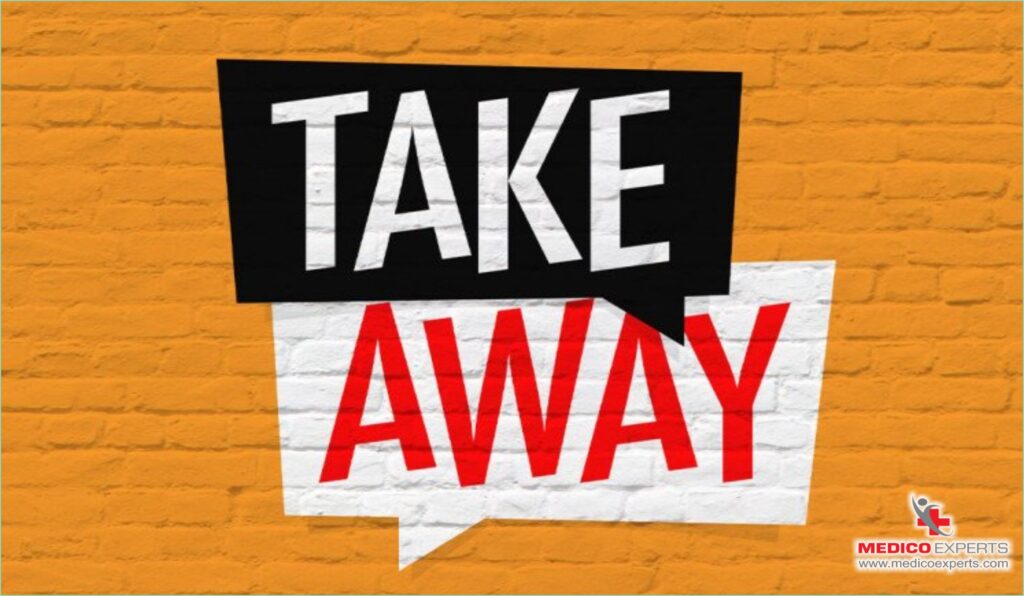
Though there is no cure for MND, numerous therapeutic approaches such as stem cell therapy, alternative and supportive therapies, and mainly combination therapy, can help manage the symptoms, prolong independence, and enhance health.
From special treatment and diet plans to the appropriate drugs and ambulatory equipment, they try to preserve the functions and comforts as much as possible as they provide encouragement and optimism to the patients with MND.
As further research is pursued, combination therapies are expected to become even more tailored to individual needs, paving the way for increasingly effective interventions that target the complex nature of MND.
Book an appointment with the best specialists for Motor Neuron Disease
Frequently Asked Questions (FAQs):
Q1. Is MND a painful disease?
A. Most of the time, MND is not painful, but as it worsens, it can produce muscular rigidity and cramping, which can be uncomfortable. Pain can be caused by limited movement, joint difficulties, or extended immobility, and it is generally treatable with physical therapy and drugs.
Q2. Can you fully recover from MND?
A. Currently, there is no cure for MND, which is considered a degenerative condition. MedicoExperts connects patients with a multi-disciplinary team that includes neurologists, physical therapists, and nutrition specialists to provide thorough, supportive treatment.
Q3. How does MND start?
A. MND often begins with muscle weakness, twitching, or cramping in one limb, for example, the hands and feet. Over time, it damages more motor neurons leading to muscle weakness, speech impairments, and difficulties with swallowing.
Q4. How does MND affect the nervous system?
A. MND progressively destroys the motor neurons that transmit messages from the brain and spinal cord to the muscles. As motor neurons degenerate, communication between the nervous system and the muscles becomes even poorer. This leads to muscular atrophy and later complete paralysis despite the retention of sensory function.
Q5. What is the new treatment for MND?
A. New treatments include stem cell and gene therapies that attempt to regenerate or replace damaged neurons. With respect to advanced solutions, MedicoExperts provides the best solutions such as stem cell treatment, which utilizes bone marrow-derived cells to improve motor neuron functioning and delay the progression of this disease.
Q6. What are the stages of motor neuron disease?
A. MND proceeds through three stages: initial, intermediate, and advanced. Early symptoms may include regional muscular weakness and cramps. Middle stages demonstrate more significant muscular waste and trouble with daily tasks. In the later stages, most muscles are damaged, and assistive equipment or ventilator support may be necessary.
References
https://www.nhs.uk/conditions/motor-neurone-disease/#:~:text=There’s%20no%20cure%20for%20MND,unfortunately%2C%20eventually%20leads%20to%20death.
https://www.nhsinform.scot/illnesses-and-conditions/brain-nerves-and-spinal-cord/motor-neurone-disease-mnd
https://www.healthdirect.gov.au/motor-neurone-disease-mnd#symptoms
https://www.betterhealth.vic.gov.au/health/conditionsandtreatments/motor-neurone-disease#coping-with-the-effects-of-mnd
https://www.mndnsw.org.au/about-mnd/what-is-mnd/70-causes.html
Ayurvedic Treatment for Motor Neuron Disease
https://www.bbc.com/news/articles/cgrrnxxrwy8o
https://pmc.ncbi.nlm.nih.gov/articles/PMC2270983
Relevant Articles For You
Motor neuron disease is a rare condition that affects your brain and nerve cells (neurons). It makes the body weak and gradually…..Read More
If you are thinking of getting your neurological treatment done within India and want to know who are the most experienced…..Read More
The biological task of stem cells is to repair and regenerate damaged cells. Stem cell therapy exploits this function by…..Read More
Recommendations To Understand Different Treatments
Stem Cell Therapy In India
Stem cell therapy is the transplantation of stem cells extracted from your own bone marrow and body fat. Stem cells repair and regenerate your damaged…..Read More
Medically Reviewed By MedicoExperts Editorial & Clinical Review Board On 19 November 2024


